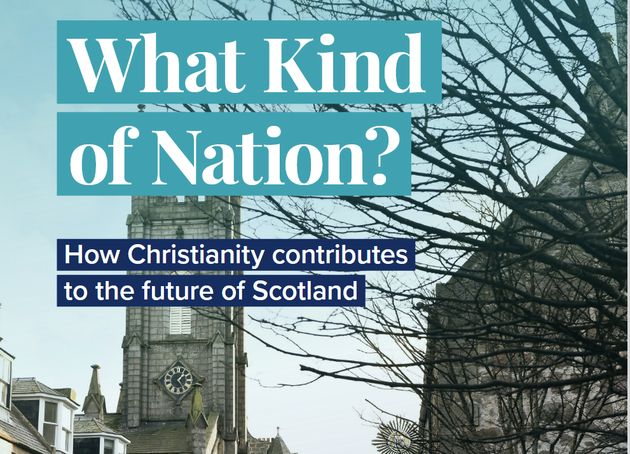Ten years after the independence referendum, a report reflects on the influence of faith in policy making. “Christians should make a difference”, says deputy first minister Kate Forbes.
![Photo: [link]EAUK[/link] .](https://cms.evangelicalfocus.com/upload/imagenes/670948e10f3b8_Scoteauk940.jpg) Photo: [link]EAUK[/link] .
Photo: [link]EAUK[/link] .
Ten years ago, a referendum on Scottish independence from the United Kingdom took place, in which 55% voted against.
The UK Evangelical Alliance (EAUK) participated in the public debate around the referendum, by launching What Kind of Nation? A Manifesto for a Future Scotland, “a foundational document which framed much of our advocacy work for the following decade”, they said.
Since then, “the church has remained a constant throughout Scotland’s uncertain, constitutional future; the Covid-19 pandemic and changes in political leadership”, says the EAUK.
For the evangelical entity, “now is the time to reflect on the role we, as Christians, can play in the future of our nation”.
That is why they have launched a new edition of the document called What Kind of Nation? How Christianity contributes to the future of Scotland.
According to Chris Ringland, EAUK public policy officer, the report is “a reflection on where we are as a nation”; a “framework for how and why evangelical Christians engage in political life”; and “an encouragement for Christians to keep reflecting and sharing Jesus, seeking the best for Scotland in everything”.
“If you are a policy maker, we hope this report will help you to both understand our community better and give you greater confidence in engaging and working with us“, adds Ringland.

The document “seeks to set out the difference we can make to all aspects of governing, to make Scotland a more just, more thriving, dynamic and diverse nation than it already is”.
“We believe that the Christian worldview of hope, mercy, justice and redeeming love has something to say in every area of society. It is part of our calling to seek to bring to bear the God story into the conversations about the wellbeing of our nation”, stresses the EAUK.
That is why the report tackles six of “the big policy issues facing our nation today“, which include other sub-topics related to the main issue:
Those policy issues are:
Poverty and cost of living: Welfare support; housing and homelessness; drugs and alcohol policy; education.
The economy: Economic growth, business and community, depopulation, family and community
Justice: Church, community and prisoner rehabilitation, violence against women and girls, racial justice, immigration, refugees and asylum seekers.
Life, health and Equality: Health and social care, freedom of religion or belief, disability, assisted suicide and abortion, ending conversion practices.
The environment: Climate change, energy, transport, rural affairs.
The constitution: Scottish independence, UK further devolution.
For each issue, the report first explains what is “the call” for Christians regarding that topic, and then it presents “what God is doing through our members”, to “allow decision-makers to see the value of faith in our nation”.
“The next 10 years are uncertain. Scotland will face many challenges. However, God is faithful, He is not finished with Scotland yet”, concludes the report.
The public launching of the What Kind of Nation? report took place this week at the Scottish Parliament. It was attended by Scotland's deputy first minister Kate Forbes, who spoke during the event.
“I often talk to people and there is an element of fear, of worry, there are questions of whether we should get involved or not, and my response is to have that confidence to get involved”, underlined the Christian politician.
Forbes acknowledged “the big changes that have been delivered over generations in this country because of the work of Christians“. “We have a choice right now as to whether that will continue to be the case, I want to be part of it, and I hope you do too”.
“We know that the need is great, and as a church, as faith communities, there is an opportunity for us to do something that demonstrates that love”, she added.
Conservative Member of the Scottish Parliament Jeremy Balfour introduced the launch event, pointing out that “it is a real challenge for us politicians, to take the work that is done seriously and to recognise the importance of it and the need to be able to fund it and to support it in different ways”.
Lynne Paterson, who recently became head of the EAUK in Scotland, closed the event by encouraging policymakers to pay attention to the church, because “it has got something really important to contribute and to be that good news within their communities”.
“The member organisations that are featured in the report, represent just a fraction of the value that Christians are contributing to Scotland [...] They are motivated by God's love and mercy, they have experienced it themselves and want to give it out. And they are compelled by the vision for a different kind of society that we read about in the Bible”, she added. .
You can read the full report of the EAUK in Scotland here.
[analysis]
[title]One more year[/title]
[photo][/photo]
[text]At Evangelical Focus, we have a sustainability challenge ahead. We invite you to join those across Europe and beyond who are committed with our mission. Together, we will ensure the continuity of Evangelical Focus and Protestante Digital (Spanish) in 2024.
Learn all about our #OneMoreYearEF campaign here (English).
[/text][/analysis]

Las opiniones vertidas por nuestros colaboradores se realizan a nivel personal, pudiendo coincidir o no con la postura de la dirección de Protestante Digital.
Si quieres comentar o